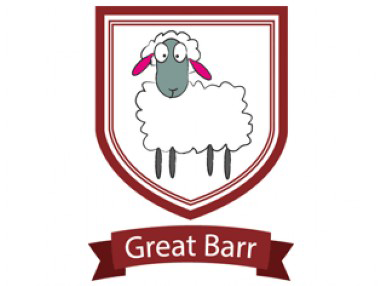I’m the SENCo at Great Barr Primary School where we have a resource base for physically disabled children; we are a FAMS provision and have 11 children in total with varying needs. The majority of these children have cerebral palsy.
One child in year 4 has really demonstrated to us the difference Clicker 7 can make; we’ve seen a massive shift away from Teaching Assistant (TA) dependence. This pupil really struggles with fine motor control when writing, so being able to use the mouse on her laptop to generate sentences and complete the work expected of her is fantastic.
Recently we had Ofsted and Quality Mark assessors in and they both commented on how wonderful it was to see her being so included in the classroom. This pupil loves using Clicker; she’s an independent girl and whilst it can be great to have an adult nearby, it can also prevent social skills from developing and limit opportunities to interact with peers. But now, apart from the TA setting up her laptop in the morning, she’s perfectly capable of being at her table with the rest of the children and working independently. This is such a huge contrast to a year ago when she would always have someone with her to scribe all her work. With the support of Clicker she can demonstrate what she knows, and is able to express it herself – you can really see the progression she’s making.
One of our favourite features of Clicker 7 is the Predictor. A lot of the children with cerebral palsy in our school struggle with processing. Having this level of support means that as soon as the Predictor’s drop-down box appears, they can start writing! They’re able to locate the word that’s needed, click on it and move on to the next word. The girl who I mentioned earlier has used this a lot when creating pieces of extended writing – and she’s now able to complete a much larger body of work than she previously could without Clicker.
We’ve also been using the iPad app Clicker Sentences with our year 1 class, where there’s a mixture of needs among the children. This has been working really well for them as they find it easy to use and they love being able to go back and hear what they’ve written with the speech feedback tool! Two of the year 1 children really struggle with their fine motor skills, so for them it’s great to be able to write for themselves without having to rely on scribes. It’s made a huge difference for that group because it enables them all to access the curriculum.
We see Clicker Sentences as a great first step towards writing with the younger groups, and we’re looking forward to transitioning them on to Clicker 7 when they move towards key stage 2 – enabling them to follow in the footsteps and have the same success as our older pupils.
I would say that the best thing about Clicker 7 is the inclusivity it provides the children with, no matter what learning difficulty or additional needs they have! Clicker is building the children’s confidence and creating the opportunity for them to be independent, while really progressing with their work. From a teacher’s perspective I can really see their work improving, and from a school’s perspective it’s created that independence – as opposed to the dependence we’ve had for so long.
There’s nothing else we’ve come across that can provide the children with a mechanism to get on by themselves so well. We know that the children don’t want to be different, and Ofsted and Quality Mark both commented on the inclusivity Clicker has provided; they looked at a child with difficulties and could see her thriving, getting on with her work independently and being really proud of what she is able to produce.
